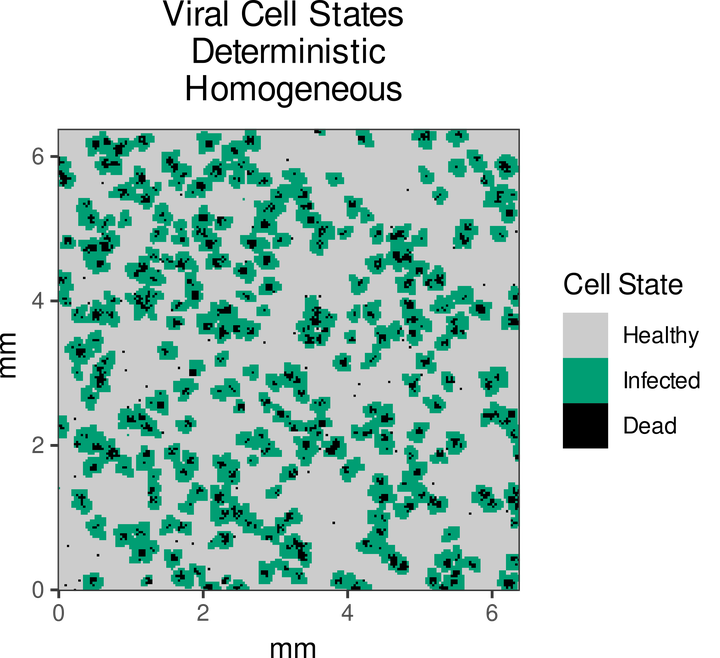Agent-Based Modeling Reveals Benefits of Heterogeneous and Stochastic Cell Populations during cGAS-Mediated IFNβ Production
 Cell States during Viral Infection
Cell States during Viral InfectionAbstract
Motivation: The cGAS pathway is a component of the innate immune system responsible for the detection of pathogenic DNA and upregulation of interferon beta (IFNβ). Experimental evidence shows that IFNβ signaling occurs in highly heterogeneous cells and is stochastic in nature; however, the benefits of these attributes remain unclear. To investigate how stochasticity and heterogeneity affect IFNβ production, an agent-based model is developed to simulate both DNA transfection and viral infection. Results: We show that heterogeneity can enhance IFNβ responses during infection. Furthermore, by varying the degree of IFNβ stochasticity, we find that only a percentage of cells (20-30%) need to respond during infection. Going beyond this range provides no additional protection against cell death or reduction of viral load. Overall, these simulations suggest that heterogeneity and stochasticity are important for moderating immune potency while minimizing cell death during infection.Availability: Model repository is available at: https://github.com/ImmuSystems-Lab/AgentBasedModel-cGASPathway